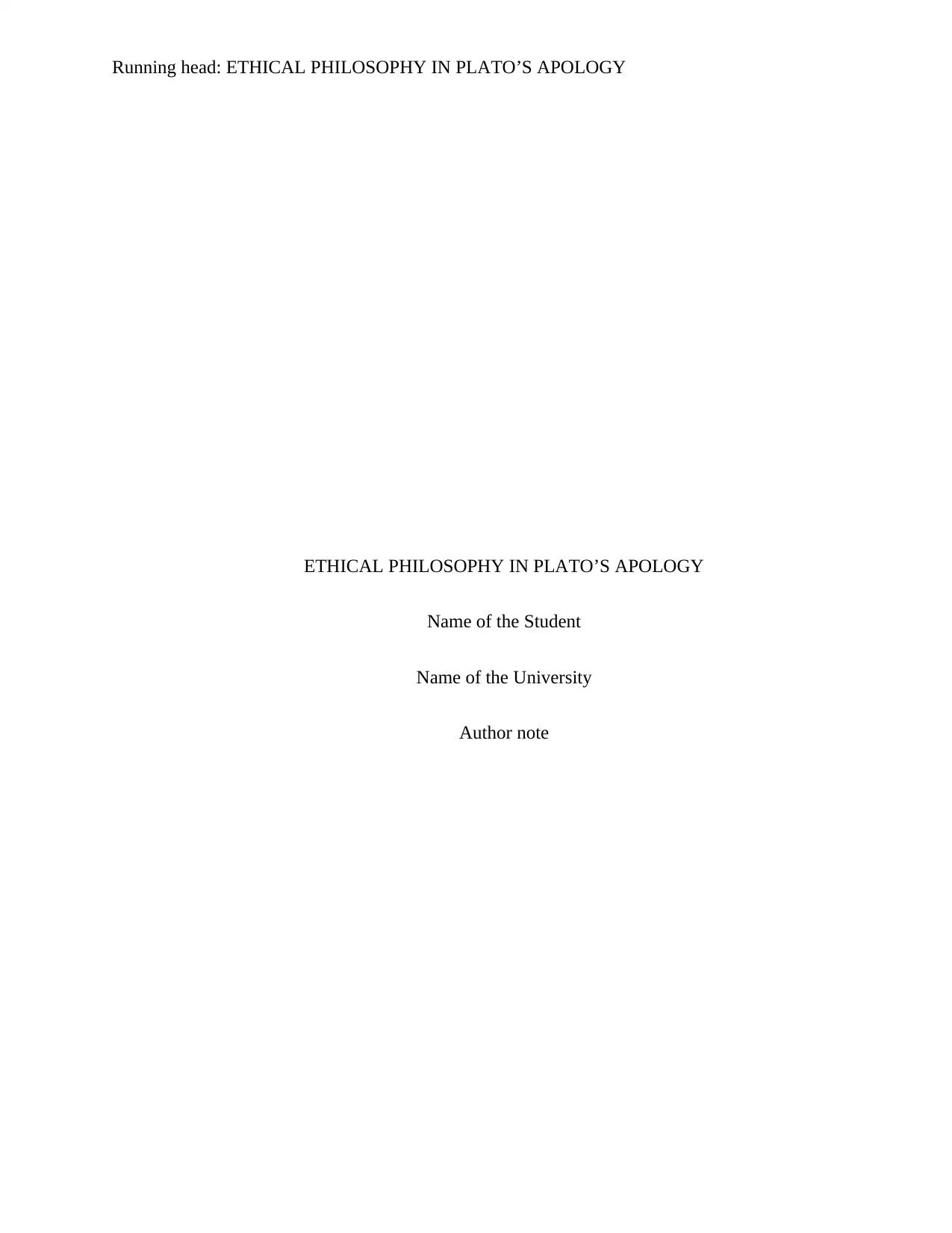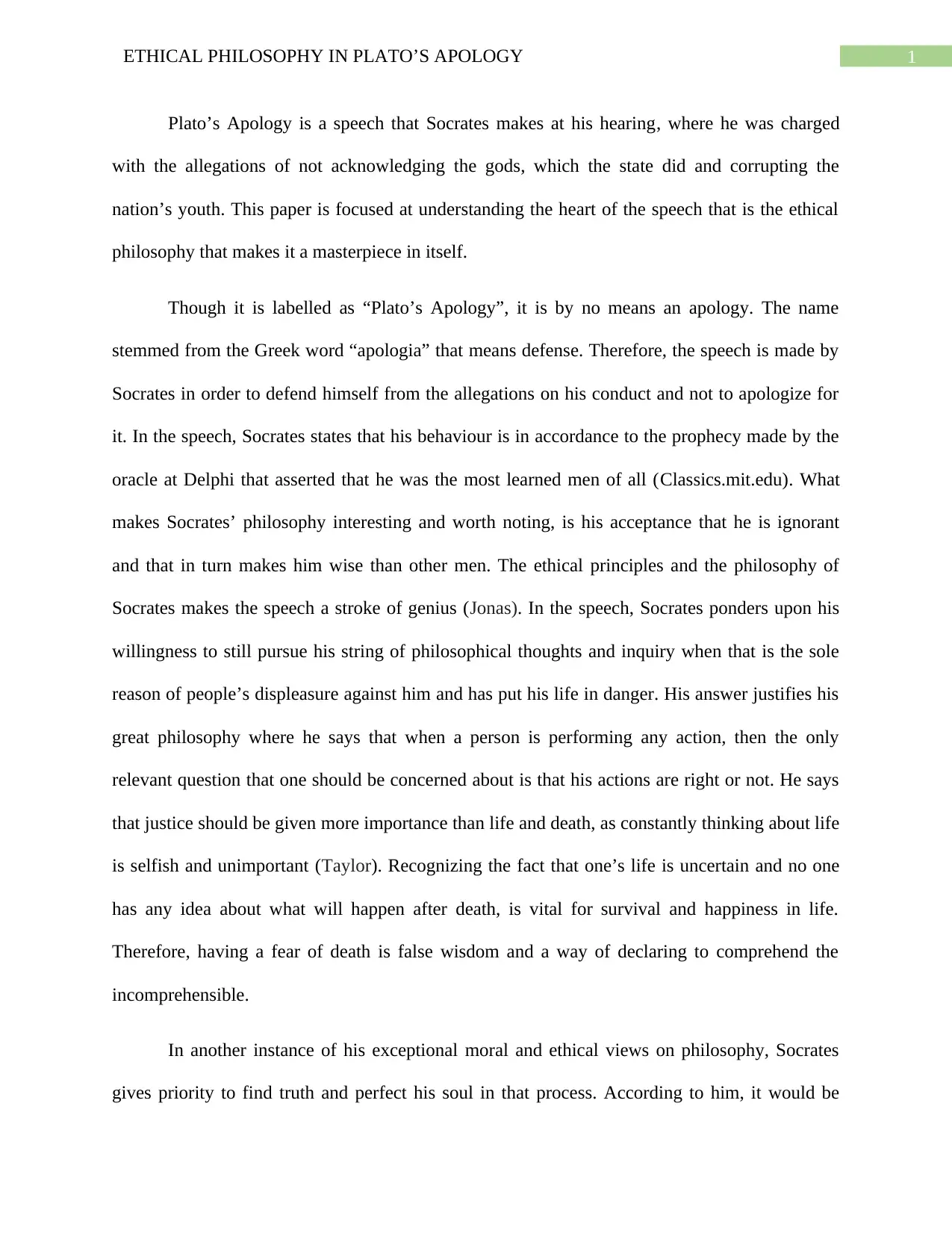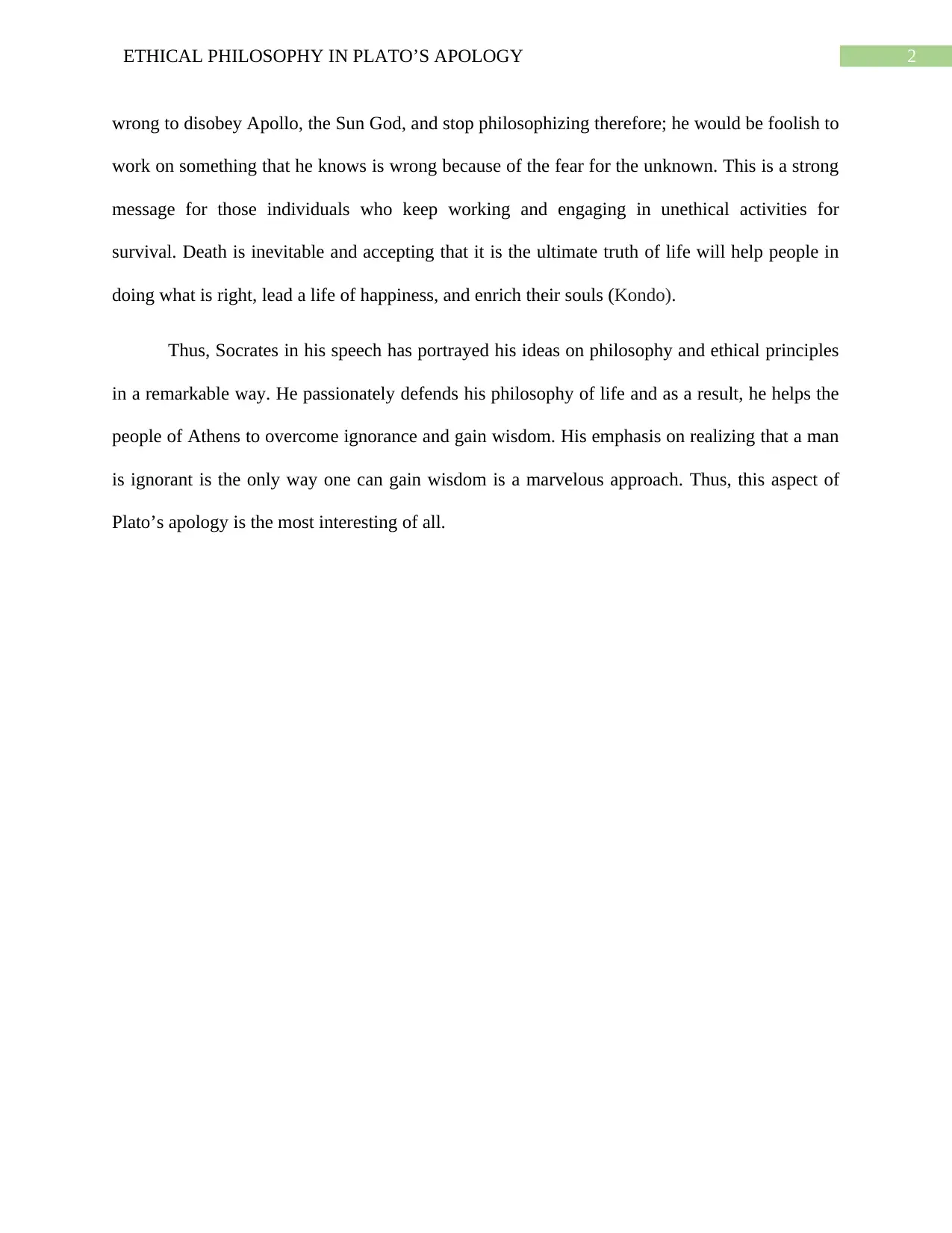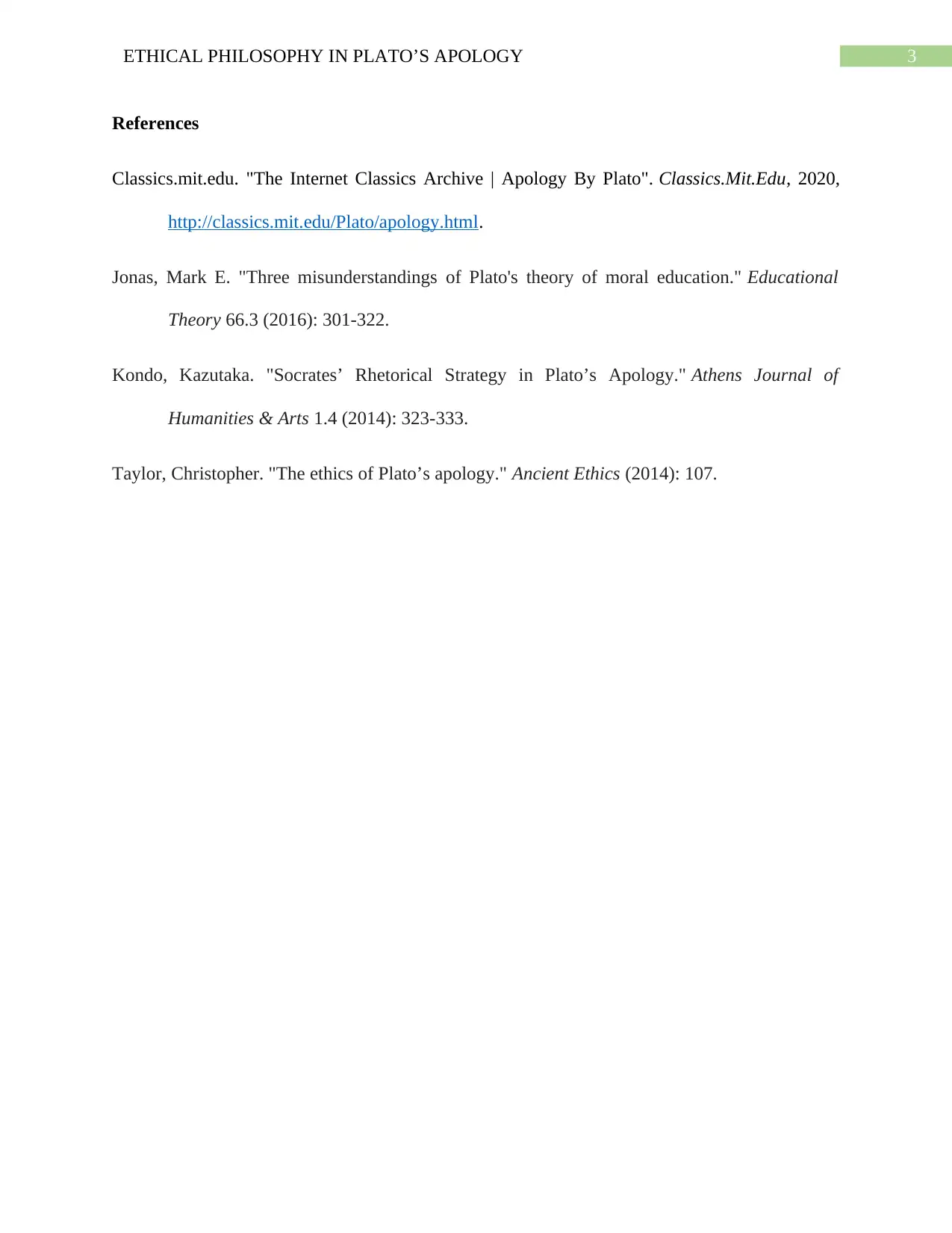An In-depth Examination of Ethical Philosophy in Plato's Apology
VerifiedAdded on 2022/08/29
|4
|711
|18
Essay
AI Summary
This essay provides an analysis of the ethical philosophy presented in Plato's Apology. It explores Socrates' defense against the accusations of impiety and corrupting the youth, highlighting his unwavering commitment to truth and justice. The essay examines Socrates' philosophical principles, including his assertion of ignorance as a path to wisdom, his prioritization of ethical conduct over life itself, and his dedication to the pursuit of truth above all else. It delves into Socrates' views on death, emphasizing the importance of living a virtuous life and the acceptance of the unknown. The paper references key sources and provides a comprehensive overview of the ethical framework that makes Plato's Apology a cornerstone of philosophical thought. The essay also examines the key arguments and rhetorical strategies employed by Socrates in his defense, illustrating how he challenged conventional beliefs and promoted critical thinking among the people of Athens.
1 out of 4











![[object Object]](/_next/static/media/star-bottom.7253800d.svg)